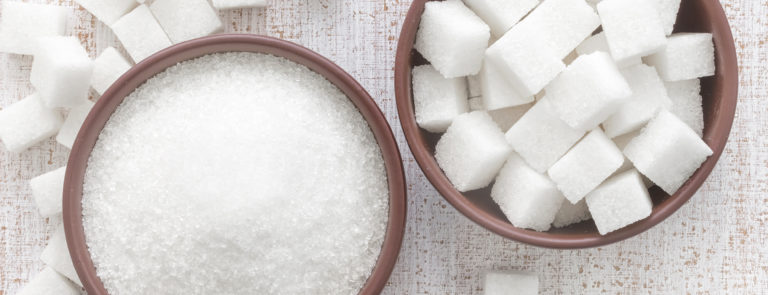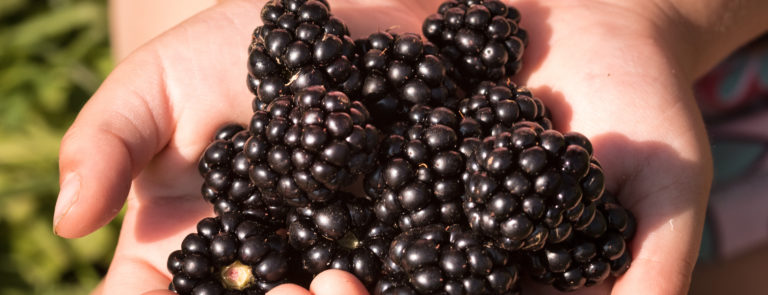15% off €35 OR 20% off €45
All you need to know about refined sugar

Your body treats sugar as fuel. When you eat or drink anything containing sugar, your body converts that sugar into glucose. This glucose is then delivered to your body’s cells, where it is used as energy.
However, most people eat far more sugar than they can burn off as energy. This leads to weight gain and tooth decay, while increasing the risk of various health conditions such as cardiovascular disease and diabetes.
Western diets often include too much of a type of sugar called ‘refined sugar’. This is sugar which is extracted from the sugar cane or sugar beet plant and processed to remove its natural nutrients.
In this article, you’ll find out about:
- What the different types of sugar are
- Refined vs unrefined sugar
- If refined sugar is bad for us
- Benefits and side effects of cutting refined sugar
- 10 foods with refined sugar and how much they contain
- If there’s a healthiest type of sugar
- What refined sweeteners are
What are the different types of sugar?
Let’s start with the basics. What are the different types of sugar? Generally speaking, sugar can be broken down into four groups:
- Glucose – a type of simple sugar, glucose is considered the body’s preferred source of carbohydrate-based energy.1
- Fructose – otherwise known as ‘fruit sugar’, fructose is another type of simple sugar or monosaccharide and is most commonly found in fruit, root vegetables, agave and honey.2
- Sucrose – also referred to as ‘table sugar’, sucrose is made up of both glucose and fructose, making it a disaccharide.
- Lactose – also known as ‘milk sugar’, lactose is found in none other than milk and it is another disaccharide as it is made from glucose and galactose units.3
Refined sugar vs unrefined sugar?
So we’ve run through the different kinds of sugar, but what about refined sugar vs unrefined sugar? We’ll highlight the key similarities and differences below.
Refined sugar
After undergoing the process of refinement, sugar loses its nutrients. It also becomes more concentrated.
The result is a seriously sweet substance which is super energy-dense, giving it a high calorie count – yet it has no nutritional value.
Refined sugar is metabolised rapidly, which causes a sudden raise (or ‘spike’) of glucose and insulin levels within the bloodstream.
Consuming too much sugar has been linked with a range of negative health effects including high blood pressure and insulin resistance.4
Unrefined sugar
Unrefined sugar is sugar in its natural state. Molasses and natural sugars from fruits like coconut or dates all count as unrefined sugar.
Unrefined sugars have more water, meaning that they release energy slightly less rapidly than refined sugar.
We should be careful not to consume too much unrefined sugar either, as this type of sugar is still very energy dense, therefore high in calories.
Want to know more? Find out why sugar is bad for you.
What is refined sugar?
Refined sugar is essentially sugar that has been heavily processed and mainly comes from sugar beets, cane and corn.
Is refined sugar bad for us? And if so, why?
Recent studies have shown that there are no advantages to refined sugar, but there are several disadvantages.
These include links to: obesity, metabolic syndrome, cardiovascular disease, type 2 diabetes, certain types of cancer, Alzheimer’s and cellular aging.5
Cutting out refined sugar
A lot of people try to cut out every type of sugar, but this can be a hard process as this also involves giving up fruit and other sources of sugar. However, if you want to keep these nutritious foods in your diet but reduce your sugar intake, you could try cutting out refined sugar instead.
Benefits of cutting out refined sugar
So what are some of the key benefits of cutting out refined sugar? From a potential lowered risk of cardiovascular disease to weight loss, there is a variety of both anecdotal and scientific evidence out there on refined sugar:
- Lowered risk of cardiovascular disease. Cutting out refined sugar may lead to a reduced risk of heart disease, as studies have shown that the higher the added sugar intake, the higher the risk.6
- Potential weight loss. Anecdotal evidence suggests that cutting out refined sugar may lead to weight loss. In one trial of cutting out refined sugar while eating the same amount of calories, the participant found that they lost 12 pounds in two weeks.7
- Less brain fog. The immediate spike in our insulin levels when we consume refined sugars such as sucrose and high-fructose corn syrup can sometimes result in brain fog or even irritability. So a reduction in these sugars may mean that this happens a lot less frequently.8
- Better sleep. High sugar intake is associated with more awakenings in the night and poorer sleep quality.9 So a reduction in this (especially refined sugars) may help you to get a better night’s sleep.10
Symptoms of cutting out refined sugar
We’ve run through why refined sugar can be bad for us and the potential benefits of cutting it out, but it’s worth mentioning that you may experience some symptoms when you do. These include:
- Cravings
- Headaches
- Irritability
- Nausea
- Fatigue
10 foods with refined sugar
Here are 10 foods and drinks high in refined sugars.
-
Soft drinks
One of the worst offenders for added sugar are soft drinks.
These include anything from fizzy beverages to fruit juices. For example, in one small serving of cola (347g) there is approximately 31g of added sugar.11
-
Condiments
Another sneaky food with refined sugar is condiments.
From ketchup to mayonnaise, this may be something to reduce or cut down on. In 100g of ketchup, there is approximately 27.5g of refined sugar.12
-
Low fat yoghurt
While you may think that opting for low fat yoghurt is a healthier choice in terms of fat and calories, you need to be aware of the added sugars that are put in instead.
In 100g of low fat yoghurt there is roughly 19g of refined sugars.13
-
Canned soups
An easy meal for a busy day, canned soup is a staple in most people’s food cupboard.
But in 100g of canned tomato soup, there is approximately 8g of sugar.14
-
Premade sauces
Whether you’re making pasta or chinese food, premade sauces are often packed with refined sugars.
For example, in 100g of sweet and sour stir fry sauce, there is approximately 20.2g of sugar.15
-
Plain chocolate
The perfect pick-me-up for when you need a boost, a lot of us reach for chocolate as a treat.
But there’s a reason it tastes so good and that’s because it’s loaded with added sugars. In 100g of plain chocolate, there is roughly 62.6g of sugar.16
-
Chocolate biscuits
Everyone’s favourite companion to a cup of tea, unfortunately chocolate topped biscuits are another food that contain refined sugars.
In 100g, there is approximately 45.8g of sugar – so your dentist might be happy if you cut down on these!17
-
Cereals
While often marketed as super healthy, breakfast cereals actually contain a fair amount of refined sugar.
For example, in 100g of frosted corn flakes there is 37g of sugar.18
-
Fruit yoghurt
Again, this is something that we consider as healthy (because it does also have a lot of nutritional value) but fruit yoghurts are another offender for containing refined sugars.
With 100g containing approximately 16.6g of sugar.19
-
Ice cream
Who doesn’t love an ice cream on a sweltering day? While this tasty treat does tantilise our tastebuds, ice cream also contains a fair amount of added sugar.
In particular, 100g of choc ices contain approximately 20.5g of sugar.20
Summary
- Refined sugars can be found in a variety of foods and drinks – and not just the sweet kind either
What is the healthiest type of sugar?
This is a hotly debated topic among scientists, as when you boil it down sugar is still sugar at the end of the day – whether it’s come from fruit or cane.
However putting it simply, our bodies don’t benefit from consuming added refined sugars, so it’s best to stick to the stuff if you’re going to choose.21
What are refined sweeteners?
Refined sweeteners are another way of making food sweet without using sugar. The most common refined (or artificial) sweeteners in modern foods and drinks include:22
- Saccharin
- Aspartame
- Sucralose
- Neotame
- Acesulfame
Where is refined sugar hiding?
Refined sugar is most commonly recognisable as ‘table sugar’ – the white granules that you’d see in a sugar bowl.
However, refined sugar has been included in the manufacturing process of many everyday foods and beverages so even if you never add refined sugar to food yourself, you’re still most likely consuming too much.
Adding refined sugar makes foods and drinks more palatable – meaning they taste better.
This is why food manufacturers add it to everything from juice drinks, pasta sauces, yoghurts to breakfast cereals.
As mentioned earlier, any products marketed as ‘fat-free’ and ‘all natural’ are in fact packed with refined sugars.
This is because by removing the fat from foods e.g. yoghurt removes much of the flavour.
The flavour then needs to be artificially replaced – and this is often done using refined sugar.
Despite the serious health warnings and a campaign from Public Health England to reduce refined sugar in everyday foods in the UK, it seems we still can’t get enough of it.23
Although unrefined sugar is often considered a healthier alternative to refined sugars, all sugar we consume has undergone some form of processing and is unhealthy if consumed in large quantities.
The final say
Over-consumption of refined sugars have been linked to a range of health conditions and cutting down on it has had some positive impacts.
So if you want to know how you can cut down on sugar, check out our article on how to give up sugar.
Last updated: 7 July 2021
- https://www.ncbi.nlm.nih.gov/pmc/articles/PMC5174139/
- https://www.ncbi.nlm.nih.gov/pmc/articles/PMC5174139/
- https://www.bbcgoodfood.com/howto/guide/sugar-explained
- https://www.ncbi.nlm.nih.gov/pmc/articles/PMC5532289/
- https://www.ncbi.nlm.nih.gov/pmc/articles/PMC5775006/
- https://www.health.harvard.edu/heart-health/the-sweet-danger-of-sugar
- https://www.fastcompany.com/3050319/how-giving-up-refined-sugar-changed-my-brain
- https://www.fastcompany.com/3050319/how-giving-up-refined-sugar-changed-my-brain
- https://pubmed.ncbi.nlm.nih.gov/26156950/
- https://www.fastcompany.com/3050319/how-giving-up-refined-sugar-changed-my-brain
- https://fdc.nal.usda.gov/fdc-app.html#/food-details/175093/nutrients
- https://www.nhs.uk/live-well/eat-well/top-sources-of-added-sugar/
- https://www.nutritionix.com/food/low-fat-yogurt
- https://fdc.nal.usda.gov/fdc-app.html#/food-details/172882/nutrients
- https://www.nhs.uk/live-well/eat-well/top-sources-of-added-sugar/
- https://www.nhs.uk/live-well/eat-well/top-sources-of-added-sugar/
- https://www.nhs.uk/live-well/eat-well/top-sources-of-added-sugar/
- https://www.nhs.uk/live-well/eat-well/top-sources-of-added-sugar/
- https://www.nhs.uk/live-well/eat-well/top-sources-of-added-sugar/
- https://www.nhs.uk/live-well/eat-well/top-sources-of-added-sugar/
- https://www.health.harvard.edu/blog/are-certain-types-of-sugars-healthier-than-others-2019052916699
- https://www.nhs.uk/live-well/eat-well/are-sweeteners-safe/
- https://www.gov.uk/government/publications/sugar-reduction-progress-between-2015-and-2018



